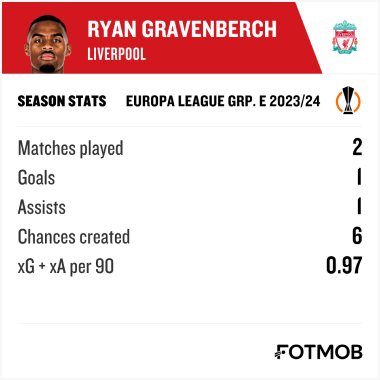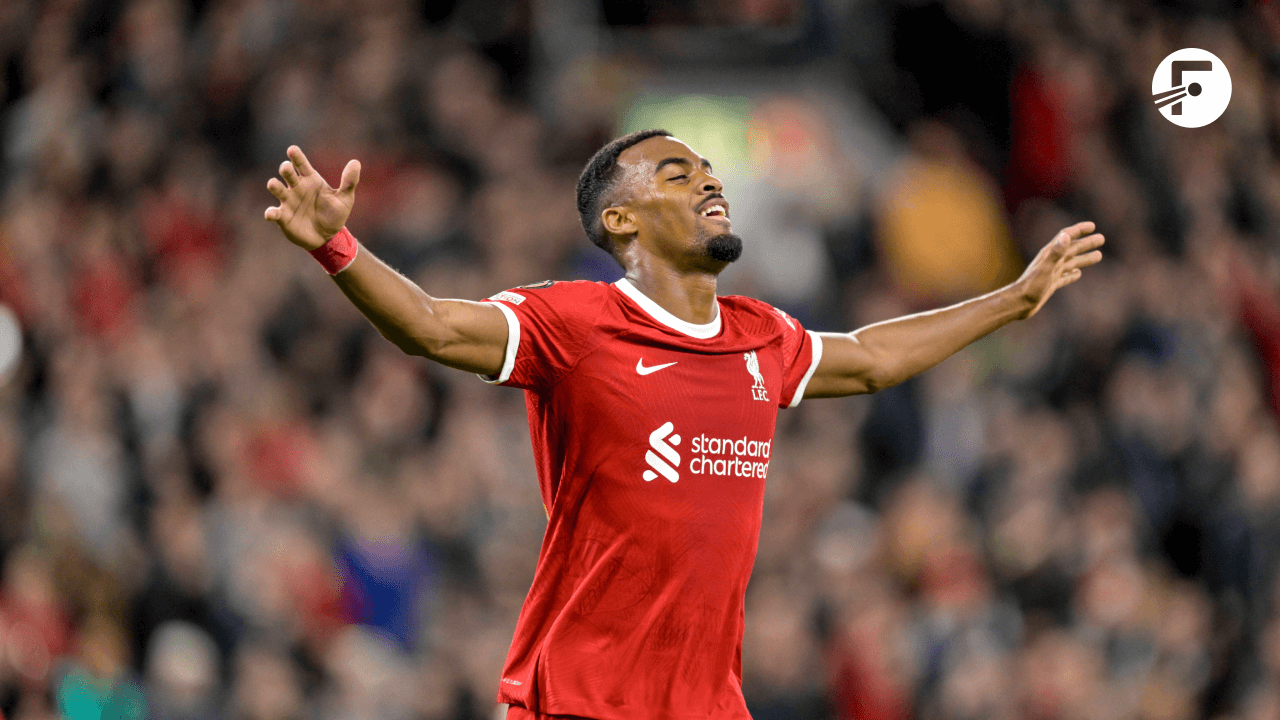For a long time, it looked as though Ryan Gravenberch would not become a Liverpool player.
By Jack Lusby, ThisIsAnfield.com
The midfielder they had tracked for years appeared set to commit to an ongoing project at Bayern Munich, while the Reds pursued alternative targets such as Fluminense’s Andre and Crystal Palace’s Cheick Doucoure.
But for Gravenberch, who had only swapped Amsterdam for Munich a year previous, something changed in the final days of the summer transfer window; apparent he was not valued by Thomas Tuchel, a deal was brokered to ensure his exit.
Liverpool were beneficiaries of a bizarre inability to maximise the talent of a player who they themselves considered on par with spurned targets Jude Bellingham and Aurelien Tchouameni as a ‘game-changer’.
Scouts had followed Gravenberch’s progress from his time in the youth ranks at Ajax, alongside a defender who briefly stopped on Merseyside, Ki-Jana Hoever.
Those within the club would have been baffled by the failure to hone in on Gravenberch’s abilities at Bayern, though Jurgen Klopp acknowledged Tuchel’s words upon the transfer being agreed that “the position he is best at, they don’t really have in their system.”
“We have that – that’s good,” was Klopp’s smiling conclusion.
Despite Gravenberch’s profile, as a player with 103 appearances for Ajax and 34 for Bayern to his name, along with 11 caps for the Netherlands national team, he arrived, just 21 years old, still something of an unknown quantity to many.
There were comparisons to Paul Pogba, while he was suggested as a belated heir to Gini Wijnaldum at Anfield, with the player describing himself as “a box-to-box player.”
Judgment was reserved, however, until Gravenberch made it onto the pitch – a matter which was delayed by his arrival on deadline day and the subsequent international break, for which he turned down a Netherlands U21s call-up to focus on settling at his new club.
That rejection left both senior manager Ronald Koeman and U21s coach Michael Reiziger furious, but it was clearly not a case of unprofessionalism from the midfielder, more a sensible decision after a wasted year in Germany.
Fast-forward almost two months, and Gravenberch has already started four times for Liverpool, only two fewer than he managed in 34 games for Bayern; at Bayern, he clocked 946 minutes on the pitch, while he has played 347 already in eight outings for the Reds. With a goal and two assists for his new club, he has already exceeded his tally of a goal and an assist at Bayern.

There has barely been a minute of those 347 wherein which Gravenberch hasn’t worn a beaming smile on his face.
The relief in departing Munich is palpable, his time at Bayern considered an anomaly in an otherwise burgeoning young career; his move to Liverpool one he now surely regrets having rejected back in 2022.
Those feelings are shared by those in the stands, on the pitch and in the dugout, too. Though he remains part of a core of rotating midfielders, rather than a guaranteed starter at this stage, Gravenberch has already become a popular figure at the club.
In the No. 38 shirt last worn by Jon Flanagan, the Dutchman has shown purpose with almost every touch. The ball sticks to his boots, and his use of it has already given Liverpool a number of openings they perhaps would not have enjoyed with predecessors such as Naby Keita and Alex Oxlade-Chamberlain. His approach is that of a facilitator, combining with the likes of Alexis Mac Allister, Dominik Szoboszlai and Luis Diaz as part of Klopp’s ‘Liverpool 2.0’ project.
But while his quality on the ball was well known prior to his £38.5 million transfer, it is this application off it that has perhaps most convinced Klopp and his staff.
“The package is really interesting. He is good in small spaces, so he can accelerate with the ball, he can retrieve the ball. He is a good passer, good shooter,” the manager explained, a fortnight after Gravenberch’s arrival. “Everybody would have said that defensively he can make the next step 100 percent, but I see that he wants that, he got that 100 percent.”
That commitment to the pressing game Klopp’s side feeds off is already evident. The sample size may be small, but no Liverpool player has averaged more interceptions per 90 than Gravenberch (3.4), while only Harvey Elliott (2.8) has won possession more on average in the final third (2.1).
His progress in this regard made it a no brainer to hand Gravenberch his first Premier League start in the Merseyside derby, standing in for the suspended Curtis Jones. The 21-year-old joined Mac Allister and Szoboszlai in the engine room and was influential throughout his 62-minute showing.
Despite being brought off as part of a tactical tweak, no Liverpool player made more interceptions (three), only centre-backs Virgil van Dijk (10) and Ibrahima Konate (nine) made more recoveries (seven), only Alisson and substitute Elliott (both 100%) posted a higher passing accuracy (97%) and only Klopp’s four attackers – Diogo Jota (14), Mo Salah (eight), Diaz (five) and Darwin Nunez (five) – had more touches in the Everton box (four).
It paints the picture of a player who has taken Klopp’s advice to heart.
“He came to me and said to me, ‘feel free’, you know, ‘you can do whatever you want’,” Gravenberch revealed, after an assist on his first start for the club against LASK. “Of course you have to do your things [for the team], but he just said ‘feel free and show yourself and the Ryan you are’.”
That freedom is exactly what Gravenberch needed: a player bafflingly restricted at Bayern has now been liberated in Liverpool. Now it is a case of what’s to come, not where to go.
(Images from IMAGO)
To keep up to date with everything Liverpool, make sure you click follow on the team profile in the FotMob app. Download the free app here.
